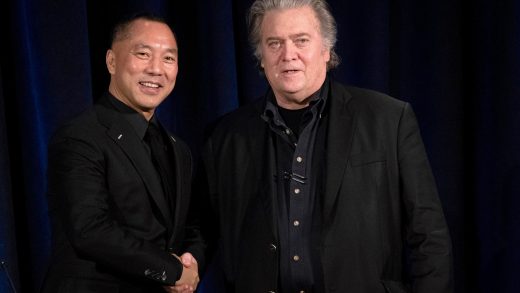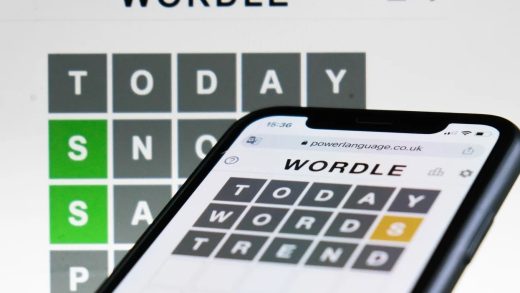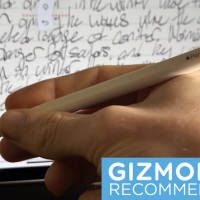In November 2012, the founder and figurehead of a regional rightwing party died, and to mark his passing, Bombay city went into a complete, daylong shutdown. Shops, markets and roads were ordered to close without notice, and people largely stayed indoors—a combination of acceptance and fear. In response, a young woman posted a comment on Facebook criticizing the shutdown, and her friend liked the comment. Both were arrested. Later that day, a group of men vandalized a medical clinic belonging to the girl’s uncle.
I remember sitting in my dad’s Bombay flat, feeling utterly, deeply shocked. She was arrested? For a Facebook post? Eight years later, six of which have been governed by an increasingly genocidal government, what surprises me most when I look back at that incident is my shock. Since the Hindu nationalist BJP came to power in 2014, arrests for “anti-national” speech, actions and protests — both online and off — have practically become par for the course. In 2018, a news report found that of the people arrested for online speech, many were recent smartphone owners, over half were Muslim, and almost all were incredibly poor.
Jivan, the young woman who opens Megha Majumdar’s debut novel A Burning, perfectly fits the bill. She is arrested in the opening pages, swept into a system explicitly stacked against her. Set in the Indian state of West Bengal, Majumdar’s taut, sharp narrative intimately follows three individuals living amidst the rise of fascism—a setting that deeply shapes their lives, and yet is so violent and pervasive that comprehending it is an impossible task.
Instead, the paw paw of autorickshaws and the gheu gheu of street dogs draws us into a sampling of small lives that are made, bolstered, crushed and silenced by a violent state. A Burning has all the page-turning qualities of a thriller, and as I tore through its three central storylines, I found myself echoing Jivan’s question: “If she had received a chance to tell her story, how might her life have been?”
I spoke to Megha Majumdar about shame, freedom, the limits of fiction, and what hope in the face of profound injustice can look like.
Richa Kaul Padte: A Burning begins with Jivan, a young Muslim woman who lives in a slum, watching the aftermath of a terrorist attack play out online:
“I admired these strangers on Facebook who said anything they wanted to…Whether it was about the police or the ministers, they had their fun, and wasn’t that freedom? I hoped that after a few more salary slips…I would be free in this way too.”
Elsewhere in the book, a middle class PE teacher finds himself at a Hindu nationalist rally, witnessing a man standing on a car, thrusting a dagger in the air. He thinks: “How spirited this man is…How different from all the schoolteachers PT Sir knows. How free.” The central characters in your book are all in some way driven by a desire for freedom. So I’m curious to know: what you think it means to be free?
Megha Majumdar: Hmm, I think freedom has a great deal to do with having the opportunity to pursue a meaningful life. So it’s a profound injustice when that opportunity is denied—when a person like Jivan spends her energies on trying to save her home from being demolished and securing a reliable water supply to her apartment. Or when PT Sir feels that his life as a schoolteacher fails to have the kind of vigorous impact on the nation that he might have dreamed of for himself. Who could they have been? What might they have achieved? That’s where the pain of being denied freedom makes itself felt.
RKP: One of the central threads winding its way through your novel is shame, experienced in different forms. Lovely, a trans woman from the Hijra community, teases a group of boys who are openly staring at her until they begin, instead, to stare at their feet. She tells us: “In this life, everybody is knowing how to give me shame. So I am learning how to reflect shame back on them also.”
Elsewhere in the book, Jivan narrates: “My head feels drawn to the earth, incapable of raising itself. I listen to [her] scolding in this posture of shame, until the posture is all I am.”
Megha, I think I’ve asked every South Asian woman I’ve interviewed over the years about shame, because it’s a theme that keeps surfacing in their work. Why do our societies steep women in so much shame — and to what effect?
MM: Your question urges me to think harder about this, and I am grateful to you for that, Richa. Shame operates as an oppressive force, a way to keep certain people from aiming too high or reaching for things that the rest of society doesn’t think they deserve. So it’s rich for storytelling, because right away you have people who push back and resist and assert their right to dream. And perhaps it surfaces in our work because we have grown up, as you say, steeped in forms of it.
An experience that my friends and I shared in our teens was being groped on buses and autos—first there was confusion and shame. Then we began talking about it among ourselves and pushing back. We encouraged each other to loudly protest when it happened; we learned to shout, “Keep your hands to yourself! Don’t you have any shame?” to these grown men on crowded buses. We learned to throw this shame back at them, and it was what they feared. They stopped as soon as you raised your voice and shamed them. It was our triumph.
RKP: One of my favorite things about A Burning is also the thing I found the hardest: the way you demonstrate the crushing weight of violence borne from inequality and prejudice—a weight that’s so terribly heavy that understanding it seems futile. As Lovely says of police brutality:
“Many years ago I would have been asking why is this happening? But now I am knowing that there is no use asking these questions. You might be begging on the train and getting acid thrown on your face. You might be hiding in the women’s compartment for safety and getting kicked by the ladies…In life, many things are happening for no reason at all.”
This sentiment is echoed throughout the book, and wherever a character does try to wrest reason from senselessly oppressive circumstances, it only seems to lead to further devastation. I tend to believe that the best way to overthrow a system is to name it, to understand how it works. But does this perhaps have more to do with my own privileges than with the capacity of knowledge itself?
Wanting a better life is an act of resistance, and an act of hope.
MM: That randomness is so hard to deal with. I wanted to confront it in the book, and explore how even though a novel needs to make a certain kind of sense and follow a narrative logic, life is full of random injustices and instances of violence. Perhaps these characters have lives outside the margins of this book, and perhaps that’s where the imposed logic of fiction fails them.
RKP: Could we talk about belief, please? You do a wonderful job exploring not just what it means to tell one’s own story (an experience routinely denied to your characters) but also what it means to have that story believed. In your novel, which of course reflects a ground reality, belief is often manufactured as a means to preserve or garner power—whether it is belief in someone’s guilt, the belief that certain “types” of people are a threat to “the nation’s future,” or even the fervent belief in a powerful majority religion. What, according to you, is belief contingent on?
MM: An author I’ve had the great luck of working with in my role at Catapult is Dina Nayeri, who wrote about this question in her book The Ungrateful Refugee. When refugees and asylum seekers face certain expectations of what their story and suffering are supposed to look like, what do they do when their story deviates from that expectation, when their true story is more complex or surprising? The stakes for them couldn’t be higher. It’s such an intricate, profound question.
In my book, belief in someone is perhaps another way of asserting who has the right to speak, and who doesn’t. All the lines of class, education, privilege, gender, and so on—all of these lines converge upon this question: Who is considered worthy of our trust?
RKP: A Burning is set in a country teetering on the edge of fascism, and yet, by intimately inviting us into the lives of your characters, you make it difficult for the reader to parse out clearly demarcated “sides.” Instead, you present to us a deep fear—of the state, destitution, violence, and rejection—that engulfs people in a society marked by tremendous inequality.
PT Sir’s journey from disgruntled schoolteacher to Hindu nationalist is, for example, driven by the same sort of fear that he eventually inflicts upon others. There’s a moment when he reflects: “The Muslim man’s family perished, nobody is denying that, but he himself will be all right. Maybe that is all that can be salvaged.” I was really scared in this moment, Megha, because I felt myself almost empathize with a person who is bolstering the most vicious government I have ever witnessed. And while you never condone this violence, you do invite us into the interiority of its making. Is there something you wanted readers to take away from this? Something other than fear?
Shame operates as an oppressive force, a way to keep certain people from aiming too high or reaching for things that the rest of society doesn’t think they deserve.
MM: I wanted to write complex, full people. I tried hard not to write flat characters or simple villains. I wanted to show what an ordinary person—driven by a glimpse of what it means to have a little bit of power in a society with huge power differentials—will do. Will they hold on to their personal ethics? Will they adjust their moral compass? Will they seek security for themselves or justice for another person? And I hope the reader sees themselves in these characters, and feels close enough to them to wonder how they would act.
RKP: There’s a moment towards the close of the book where Jivan thinks, “I don’t know what this means, this matter of hope. Moment by moment, it is difficult to know whether I have it, or not, or how I might tell.” This is often what I felt while reading A Burning: is there hope? is there none? and for these characters, what might it look like?
This also makes me think of Lovely’s reflection on the ending of a beloved relationship:
“My love for Azad…is existing in some other world, where there is no society, no god. In this life we were never getting to know that other world, but I am sure it is existing. There, our love story is being written.”
Is this, finally, where true hope lies — in a world without society or gods? And if so, how on earth can we get there?
MM: I think there is great hope in all the different forms of resistance we’re seeing, whether it’s in women-led activism or a character in this book taking matters into their own hands. There is great hope in every act of ambition and dreaming and striving, right from every kid going to school so that they can have a better life than their parents did, to every grown-up who says: you know what, this secret dream of mine might sound wild to you, but I’m going to chase it. Wanting a better life is an act of resistance, and an act of hope. That’s a big part of what I wanted to write about—yes, there are systems and social institutions that challenge you and sometimes defeat you, but you still live with defiance and joy and humor. You never stop working toward the life you want. That’s what it means to live with hope.
The post “Wanting a Better Life Is an Act of Resistance” appeared first on Electric Literature.












